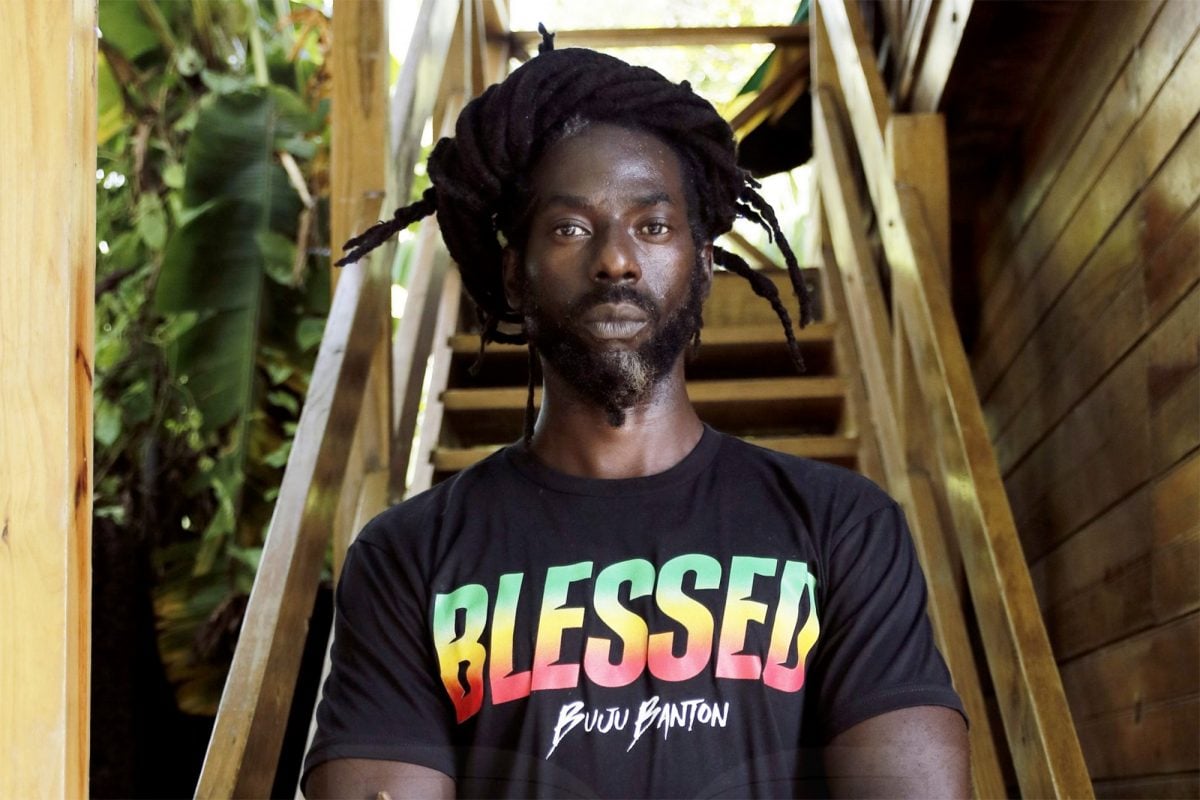Buju Banton Says Jamaican Music Is In A State Of Regression: “We Want Some Love Songs”

Dancehall icon Buju Banton has declared that Jamaican music is in a state of regression, and more love songs need to be recorded in order to activate its redemption.
Speaking in an interview on Television Jamaica’s The Entertainment Report, during the press launch of his and Beres Hammond’s Intimate Concert in New Kingston, Banton narrowed down the stagnancy in the music to the proliferation of faux producers on the island, who know very little or nothing about the basic tenets of music.
“I come from a place where studio was few and far between. Now, a guy have a laptop under his arm and he is a producer. I am not knocking it, but do you know what is key? Do you know what is frequency?” Buju asked.
“Coxone spent whole heap a time in the studio. Bob Marley spent whole heap a time in the studio, Lee Scratch Perry, Gussie Clarke, spend Lloyd James from Jammys, Donovan Germain,” he said as he listed some of Jamaica’s greatest producers.
He added: “We don’t go there with the intention of getting rich; go there with the intention of uplifting your nation, your race and music that can last beyond di day. I think right now where we are is a regression… we want some love songs”.
The Til Shiloh artist, whose latest song is So Mi Clean with Busy Signal, was also asked to weigh in on brouhaha over the Broadcasting Commission of Jamaica’s thrust to remove songs that are unfit for airplay from the island’s radio airwaves, a directive which he, like his colleague Bounty Killer, pointed out was not new.
“This policy is not new. When I was growing up the industry, we had a rule called NFFA, Not Fit For Airplay, and the NFFA rule is what drove us to the dance hall. Because, the songs that we loved were not being played on the radio. But then dance hall was not a place that we could just willy-nilly play every garbage weh di radio did not accept. It was also a place that had a guard rail, a standard. There was a standard,” Buju explained.
Buju used the opportunity to juxtapose the ban with the degenerate content in the music, pointing out that in reality, these types of songs do not last and implored young artists to take note of this.
“So I implore all the young artists dem that these songs that you are doing that cannot be played on the radio, because since I have been out since 2019, I have heard so many songs but where are they now? I don’t even remember dem. And it was not like that,” he said.
“Music is the only thing that is not supposed to die. So when it comes to a point where the music is dying, you have got to really re-evaluate what you are doing. And that’s my take on things,” he added.
Buju’s concerns are similar to those raised by international producer Jon FX, who in a recent interview with ER, spoke at length on the importance of knowing keys in music and the fact that upcoming artists ought to seek out professional music producers.
“When you have a producer that knows the key that you even talk in, and that songs work with you, it makes your records better because then you can move around with more melodies,” the Hold Yuh producer had said.
Jon FX had also said that he was willing to assist musicians by volunteering his expertise in terms of vocal coaching and production as he did not want the music which had turned him into a millionaire to die.
“So I take this Reggae like a child: I’m like I wanna help this genre. I don’t care about making any money; I don’t care about none of this stuff. There is money to be made from it but I just see the effect it has on people. It is one of the last genres we have that has messages in it. We cannot lose this genre. I cannot allow us to lose it. And this is why I am even doing it,” he had said.
“This is the element that I think we need and I want to help. And anyone that wants help, we can do it in this way where I will share it with you. We want it to work. We want our genre to win. And continue winning,” he had added.
